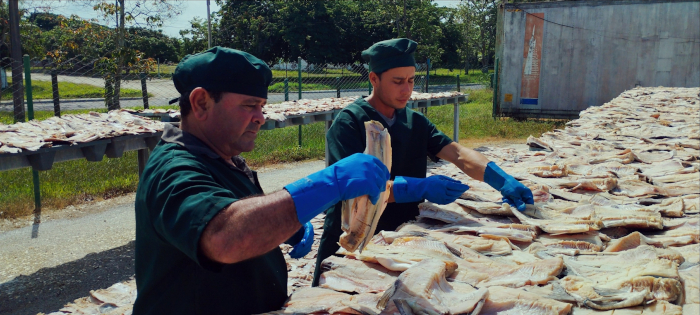
Sibanicú, Camagüey, July 12.—Brine for preserving meat and fish is an age-old recipe, currently proving its effectiveness in the province's aquaculture businesses, given the extreme energy constraints.
The Acuinicú Base Business Unit (UEB, for its acronym in Spanish), based in this locality, has been successfully using this variant for several months to conserve an important segment of catches arriving for industrial processing.
Adrián Velazco, the brigade chief at the institution, said there is a strong willingness within the group to work tirelessly and prevent, at all costs, any deterioration in production due to the electricity shortage.
"We are receiving between 2.5 and 3 tons of biomass daily," he said. "Due to its volume, part of it is sold to priority entities, and the rest is destined for sale to the population in the seven fish markets we have in two other municipalities (Guáimaro and Najasa)."

According to the specialist, preservation involves immersing the fish in the saline solution for three days, and after that time, it is placed on shelves exposed to the sun for a similar period of time to dry properly.
Armando Peña Guerra, director of Acuinicú, an entity affiliated with Pescacam company, stated that they are receiving tench and carp as their main species, and the goal is to meet the annual plan of 1,355 tons.
At the moment, he pointed out, they are working to recover the compressor of their ice plant, a key rehabilitation to ensure that the volumes extracted daily have all the necessary cooling conditions, and now limited by the lack of product in the necessary quantities. (Text and photos: Gilberto Rodríguez Rivero/ Radio Cadena Agramonte Contributor)